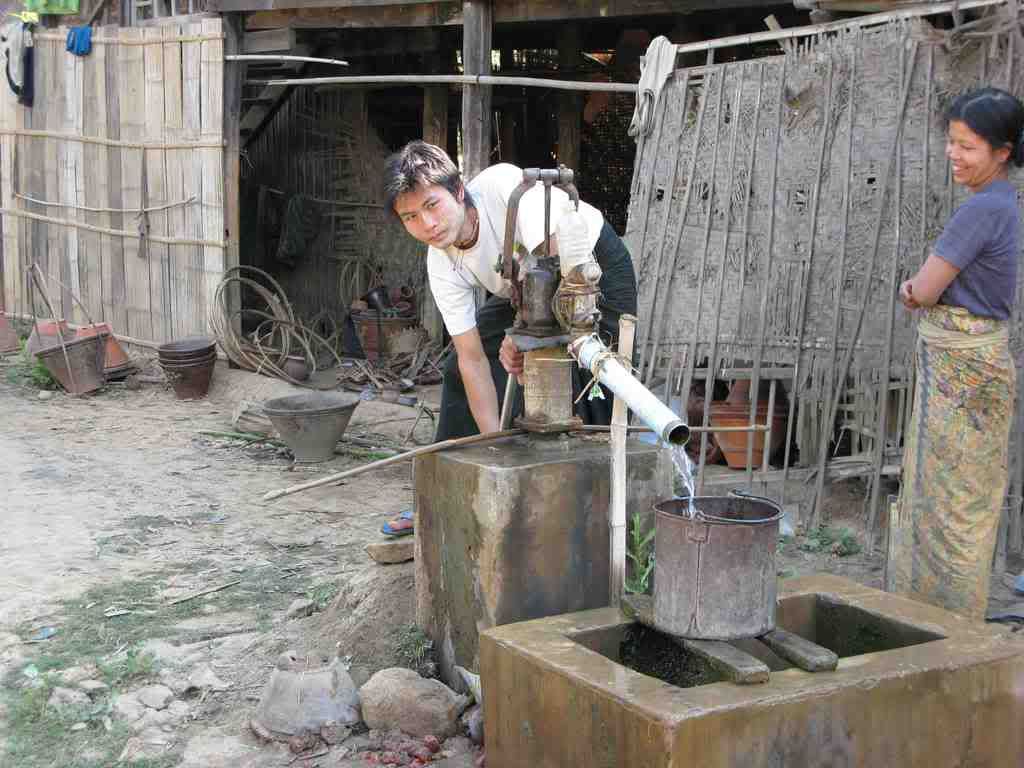 The good news, according to a recent World Health Organization report, is that the number of people worldwide with no access to a protected drinking water source has fallen below one billion for the first time. The bad news is that 2.5 billion people – most of them in Asia and Africa – lack access to decent sanitation facilities. And nearly 1.2 billion people still have no alternative than to defecate in the open.
The good news, according to a recent World Health Organization report, is that the number of people worldwide with no access to a protected drinking water source has fallen below one billion for the first time. The bad news is that 2.5 billion people – most of them in Asia and Africa – lack access to decent sanitation facilities. And nearly 1.2 billion people still have no alternative than to defecate in the open.In light of these sad statistics, it's no wonder that a new or expanded cholera outbreak – or some other water-borne disease – is reported in Asia or Africa almost daily. Here are some examples:
Jaipur India. Three people die – including an eight-year old girl – and 115 people suffer from diarrhea after drinking contaminated water. The drinking water supply became contaminated by drain water as a result of pipeline corrosion.
Chandigarh, India. An outbreak of diarrhea, including approximately 20 confirmed cases of cholera is growing. Authorities have been sampling foods and water in a desperate effort to find the source of the outbreak, which has now sickened at least 400 people.
Ho Chi Minh City, Vietnam. Students in residence at Vietnam National University have been complaining about the quality of their water. Water for the student residence is pumped from wells and held in large storage tanks. Often, the tanks are adjacent to toilet facilities. The water usually is dirty, and is heavily contaminated with alum. Students use this water for washing, cooking and drinking.
Kitgum District, Uganda. Hepatitis E Virus, which has infected 4,000 people in the last five years in this northern Uganda district and has claimed 67 lives, has been linked to water drawn from springs, boreholes and shallow wells – often located near latrines. Tests carried out on water samples from these sources detected fecal coliform bacteria – an indication that the water has been contaminated with human or animal waste. UNICEF is asking for assistance to disinfect the water sources, most of which serve IDP (Internally Displaced Persons) camps in the district.
Anchau, Nigeria. Drought has dried up 90% of the water sources in this village and its surrounding areas. The water that remains is badly polluted due, at least in part, to a poor drainage system. Cholera, ever the opportunist, has taken hold in this area and has killed a dozen people so far.
Guinea Bissau. The situation in this west African nation is just the opposite from the Nigerian crisis. Flooding caused by heavy rains has washed fecal material into the country's wells and reservoirs. The resulting cholera outbreak has spread to many areas of the country that were previous thought to be safe. So far, 611 have contracted the disease – more than half of them in July. Fourteen people have died. The World Health Organization and UNICEF are doing what they can to help stem the spread of the disease. But there is, at present, not enough chlorine in the country to decontaminate the water supply.
Myanmar. The pleasant surprise in this deluge of bad news is the Ayeyarwaddy Delta region of Myanmar – hard hit by Cyclone Nargis in early May – where cholera has not broken out. While there have been scattered cases of diarrheal disease, the outbreak predicted by so many people (including eFoodAlert) never materialized. This outcome, while unexpected, is in line with the results of a study reported recently in Journal of Hospital Infection, and commented on in the July issue of Microbe, a monthly publication of the American Society for Microbiology. The study's authors pointed out that neither the 2004 tsunami nor hurricane Katrina were followed by severe outbreaks of communicable diseases.
WHO and other international organizations face major challenges in bringing improved sanitation facilities and safe drinking water to people living in the underdeveloped regions of the world. But these outbreaks, and all the others that are yet to come, highlight the importance of this international effort. We can never eradicate cholera – it's too well entrenched. But we can reduce its ability to spread by bringing basic sanitation and hygiene to people who need them desperately.





No comments:
Post a Comment
Note: Only a member of this blog may post a comment.